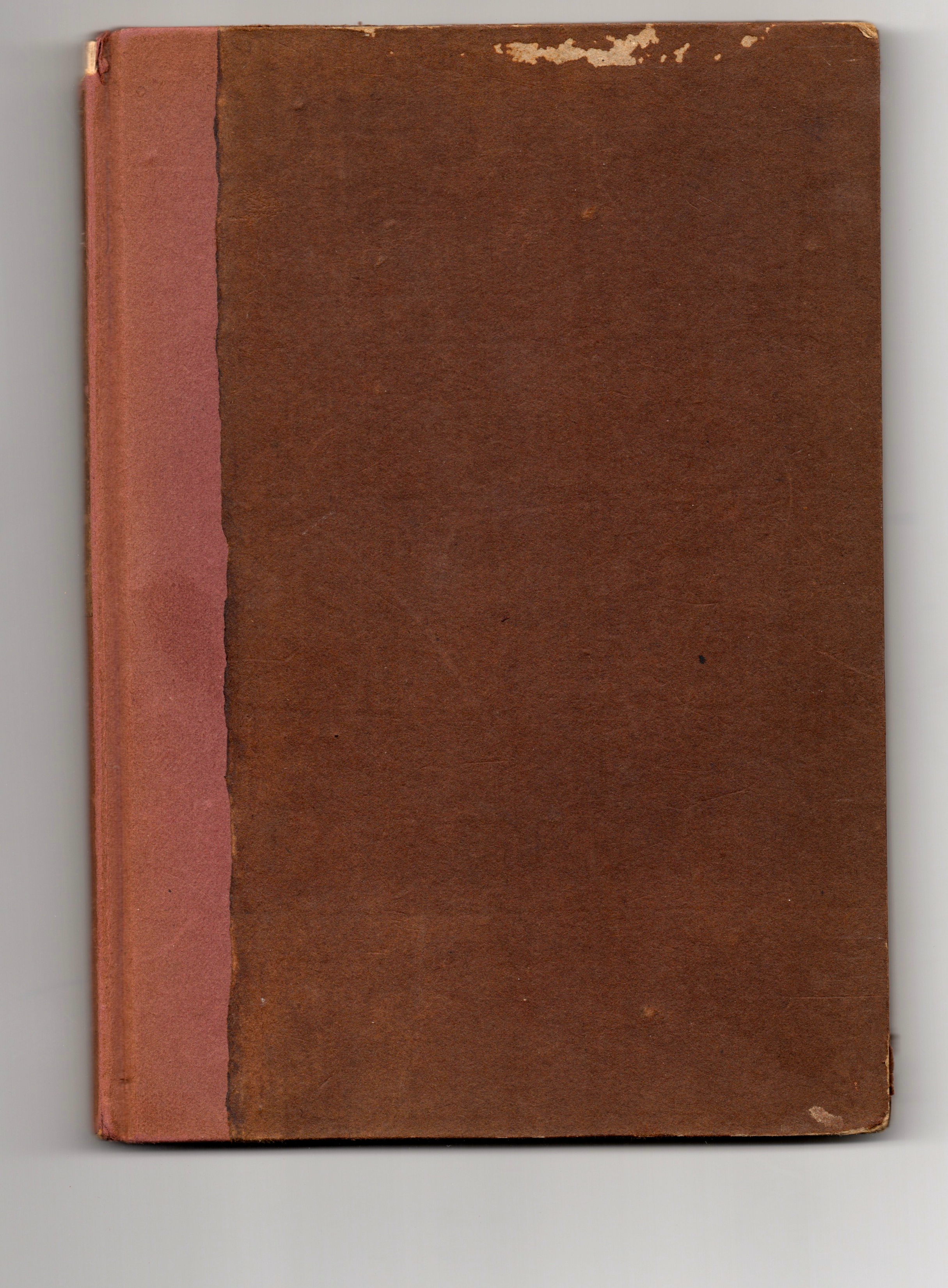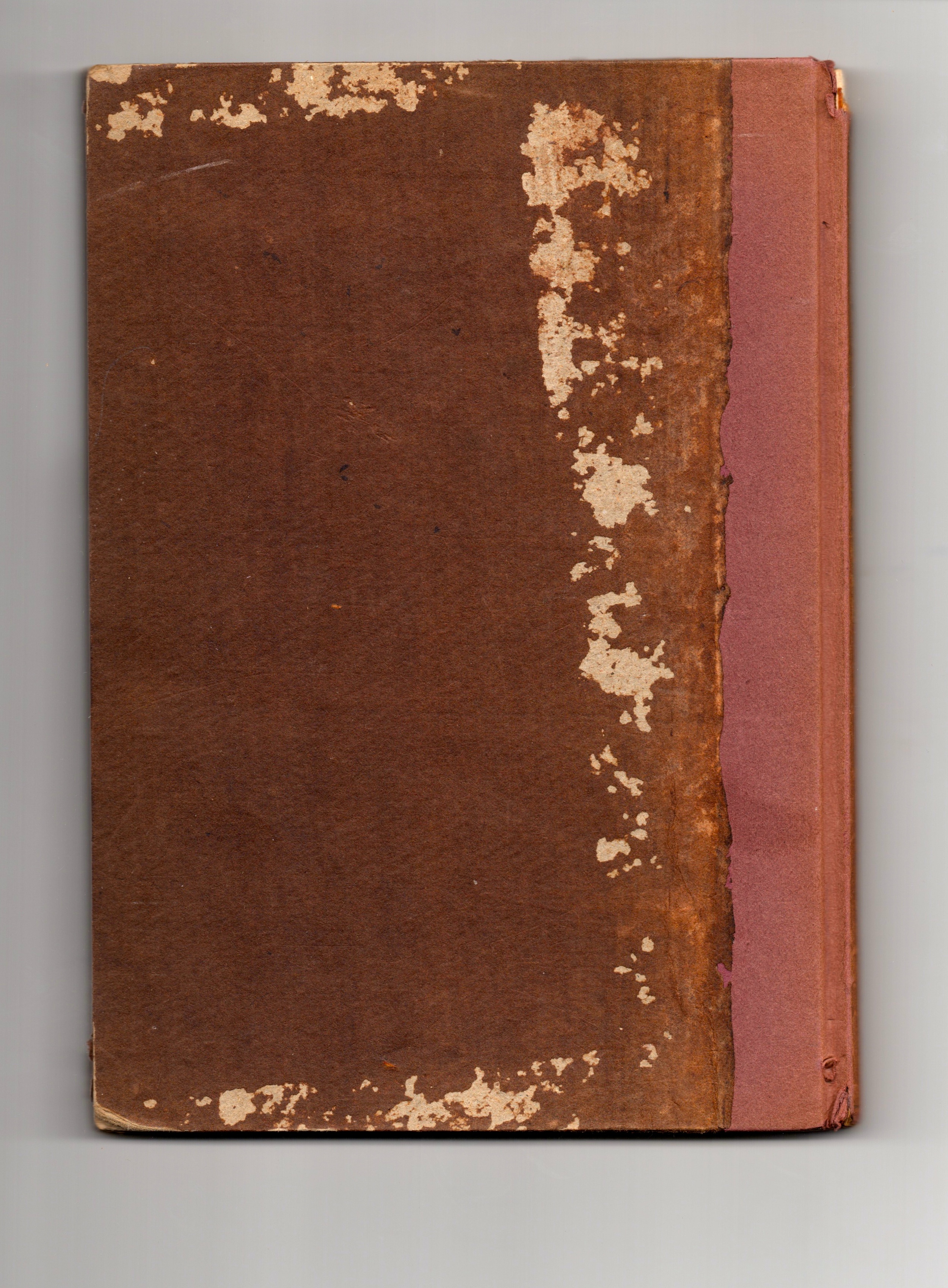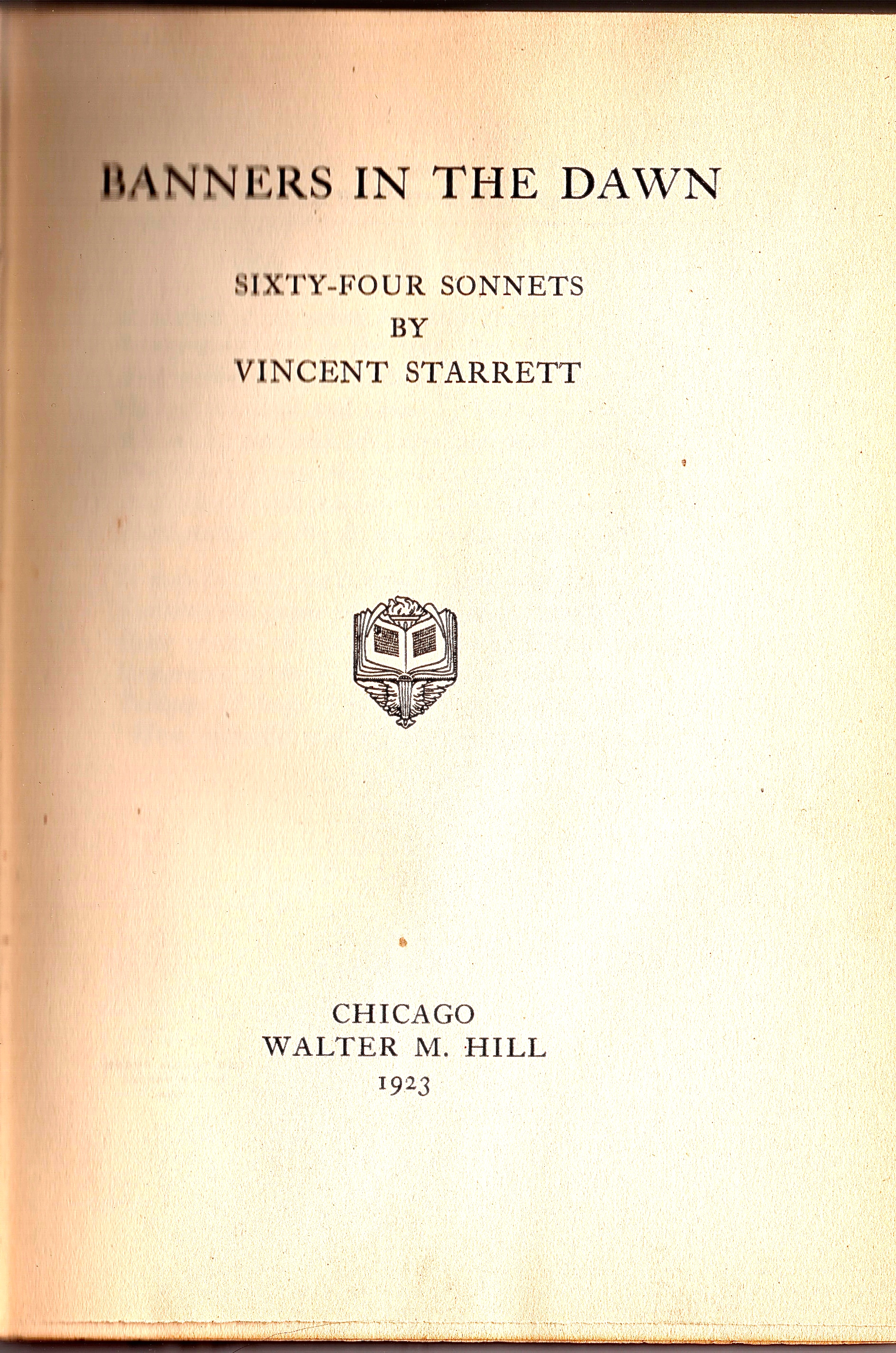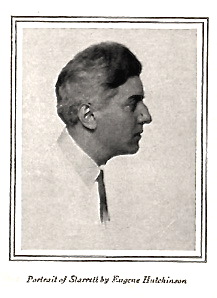"Dear Mother — "
A trip of 3,000 miles brought me an unexpected treat and the sad tale of Vincent Starrett's mother
This image of Mt. McKinley at Denali National Park has nothing to do with Vincent Starrett or his book. It's just pretty.
To celebrate our 35th wedding anniversary, Joan and I took a trip to Alaska. We have talked about it for years, and I have to say it was one of the most memorable trips we’ve taken together. To wind up the vacation, we spent a few days in Vancouver, British Columbia. We loved that beautiful, energetic city and spent hours walking its broad streets. At the recommendation of a fellow Sherlockian (Thank you, Charles Prepolec!) I dropped into MacLeod’s Books one afternoon while Joan wandered the eclectic Gastown District.
The card for MacLeaod's Books in Vancouver. Should you ever find yourself in that delightful city, you should visit Mr. Stewart.
What a bookshop! (Here are some fine photographs of the shop to prove I’m not exaggerating.)
Proprietor Don Stewart had a crazy cascading mountain range of books that echoes the mountains which surround the city. Some aisles are almost unnavigable and more than one person at a time is a crowd in several spots. After a few hours of pleasant but fruitless hunting for Starrett volumes, I asked if he had anything that was not obvious. Stewart thought for a moment. “There’s something here. . . . “ he said with little certainty in his voice. He hunted for a bit, went to an adjoining property to search its basement, and came back empty handed. He gave me his card and suggested I drop him an email. I thanked him for his time, feeling bad that I couldn’t reward his efforts with a Starettian purchase, and headed out to wander Gastown.



Or so I thought. I was on my way out of the shop when he hustled up behind me, a badly scuffed brown volume in his hand. The back cover was even worse and there was a nick out of the spine at the top. Nonetheless, it was easy to identify it as a copy of Banners in the Dawn, Starrett’s first book of poetry.
This actually presented a problem: I already own three copies of Banners (don’t ask me how, I didn’t plan it), including the one inscribed to Fridolf Johnson, the subject of a recent article here.
I told Mr. Stewart this, and he grinned.
“But do you have one inscribed by Starrett to his mother?” he asked.
I goggled.
Mr. Stewart held out the book and gently opened it.
Sure enough, the FEP held the following inscription.
The rare inscription from Vincent Starrett to his mother. Note that in his family, he was known as Charles or Charlie, while most of his professional acquaintances called him Vincent.
Dear Mother —
I hope you will
find much to applaud
and little to disapprove
in this, my first
collected volume of
verse.
Love to you at
Christmas!
Charlie
1922
The Gastown Steam clock.
My vision cleared. Mr. Stewart was still smiling. We discussed price; I paid and left. I don’t recall much else about the Gastown District, (the vague hooting of the town's steam clock was there somewhere), but I do recall feeling the trip to Vancouver — if not the whole vacation — had been more than worthwhile.
At an outdoor coffee shop a few blocks away, I took a deeper look at the inscription and was delighted. Sitting here now, a month later, the book brings the same pleasure and I can hear the old Bookman himself whispering in my ear: “When we are collecting books, we are collecting happiness.”
Before I left his shop, Mr. Stewart said that I now had a little mystery of my own.
“How did this book get from Chicago to Vancouver?” he asked as I left his shop.
I have been doing some research and am pleased to say I have a little theory. At the same time, the story of how the book got from Chicago to Vancouver is a sad tale indeed.
Margaret Deniston Young Starrett, in a studio portrait likely taken around the time of her marriage. The photo is from a family album and is undated.
But first, we need to have a few words about Starrett’s mother: Margaret Deniston Young, wife of Robert Polk Starrett and daughter of Toronto bookseller John Young. Starrett lovingly speaks of her in several spots of his memoir, Born in a Bookshop. Here are few excerpts.
“She was as Scotch as my father was Irish, although both were born in Canada. She had been a schoolteacher (a good one, I believe) but after her marriage she devoted herself exclusively to Dad, who needed a lot of looking after.“
Recalling his early years in grammar school and his eighth grade teacher, Elizabeth Waldt, he writes,
“Together Mother and I wrote stories and essays that delighted my teacher and also the principal of the school, an elderly graybeard who wrote inspirational poetry and sometimes read it to the class. Ultimately Mother and I collaborated, if that is the word, on a prose masterpiece that brought me undeserved distinction.
Starrett continues:
A rare 1901 family photo shows Vincent's parents, Robert Polk Starrett and his wife, Margaret Deniston Young Starrett, and their children. Vincent is the tallest, standing in his dapper suit towards the back. Next tallest and to Vincent's right is his brother Stanley. Harold is the little boy between mom and dad and the baby is Robert Gale Starrett. From the Starrett family.
In those days Victor F. Lawson, the editor of the Chicago Daily News, offered medals annually for the best essays on patriotism written by eighth-graders in the Chicago schools—a silver medal for the best essay, a bronze medal for the second best—and Miss Waldt and Mr. Wood, the principal, were enormously pleased when I was awarded the silver medal at Ericsson. I remember how the great work began. These were its opening words:
“A crisis in the affairs of a nation always brings forth men who rise to meet the occasion. There are in every land men who are so filled with love of country that they are willing to sacrifice even life itself to serve the country’s best interests.”
I am sorry I don’t remember more of it. It was one of the best essays Mother ever wrote.”
The dust jacket to Starrett's memoirs, Born in a Bookshop.
Even at an early age Starrett had a passion for detective stories and devoured the dime novels of the day in his home “while Mother read her Bible and Dad rustled the pages of his newspaper. After a time, it is true, Mother became suspicious of them—their very appearance was sinful—and spoke about them to my father.” Starrett’s father agreed to check them out, only to became just as addicted as was his son.
Starrett’s mother was a dominant force in their local church. And it’s here that we find a possible solution to how this volume of her son’s poetry came to be battered and in a Vancouver bookshop.
On Page 67 of his memoir, Starrett recalls that his mother “had the missionary spirit and would have been a missionary in foreign lands if opportunity had permitted. For a time, in her last years, she was actually a missionary among the Indians in western Canada, and at the time of her death, in 1935, was on her way to a waterside mission in Vancouver, British Columbia.” (Emphasis added.)*
A photo of Margaret Starrett’s headstone, provided by Fran Martin of Vancouver. Fran and other members of the Stormy Petrels, the Sherlock Holmes group in Vancouver, visit her grave each year, which is a kind and thoughtful thing to do.
Karen Murdock, in Sherlock Alive, adds a more somber note: "October 3, (1933), death of Vincent Starrett's mother, who went overboard from a ferryboat in Vancouver, British Columbia, a probable suicide. Her body was not recovered until over a year later."
Is it too much to suggest that on her last missionary trip to Vancouver, Mrs. Margaret Starrett had taken with her a treasured volume of her son’s poetry as a reminder of her Chicago home?
And then (after some adventures of its own) the little volume wound up almost 80 years later in Gastown and at MacLeod’s Books, where we met?
Until a better suggestion presents itself, I say the mystery is solved, Mr. Stewart.
A final thought
Starrett's elegy to his father.
Of the poems in Banners in the Dawn, i can find no obvious reference to Starrett's mother. His father is a different case altogether.
"November 24, 1918" is a tender farewell to man who was supposed to stop Charlie from reading dime mysteries, but became a fan of the disreputable form himself.
I died last night . . . Upon a narrow bed
I saw my body sink to dreamless sleep.
The silence of the room was strange and deep;
A white nurse held my hand: no words were said
Until one whispered, "Gone!" . . . And I lay there,
Who but a moment since had breathed and sighed.
With the gray smile of one who has just died.
And the white nurse's fingers in my hair.
Thus died my father, brave and strong and true.
Loving life much, and laughter more than tears . . .
Listening now there rings with my ears
His deep, fine laugh out of the utmost blue . . .
But in that dreadful moment by his side
It was my father's son that gasped and died.
*NOTE: In his memoir, Starrett sets his mother's death in 1935. In fact, she died in 1933, as Karen Murdock correctly reports. An earlier version of this article had only the 1935 date. Thanks to Fran Martin of Vancouver, B.C. for pointing this out.

